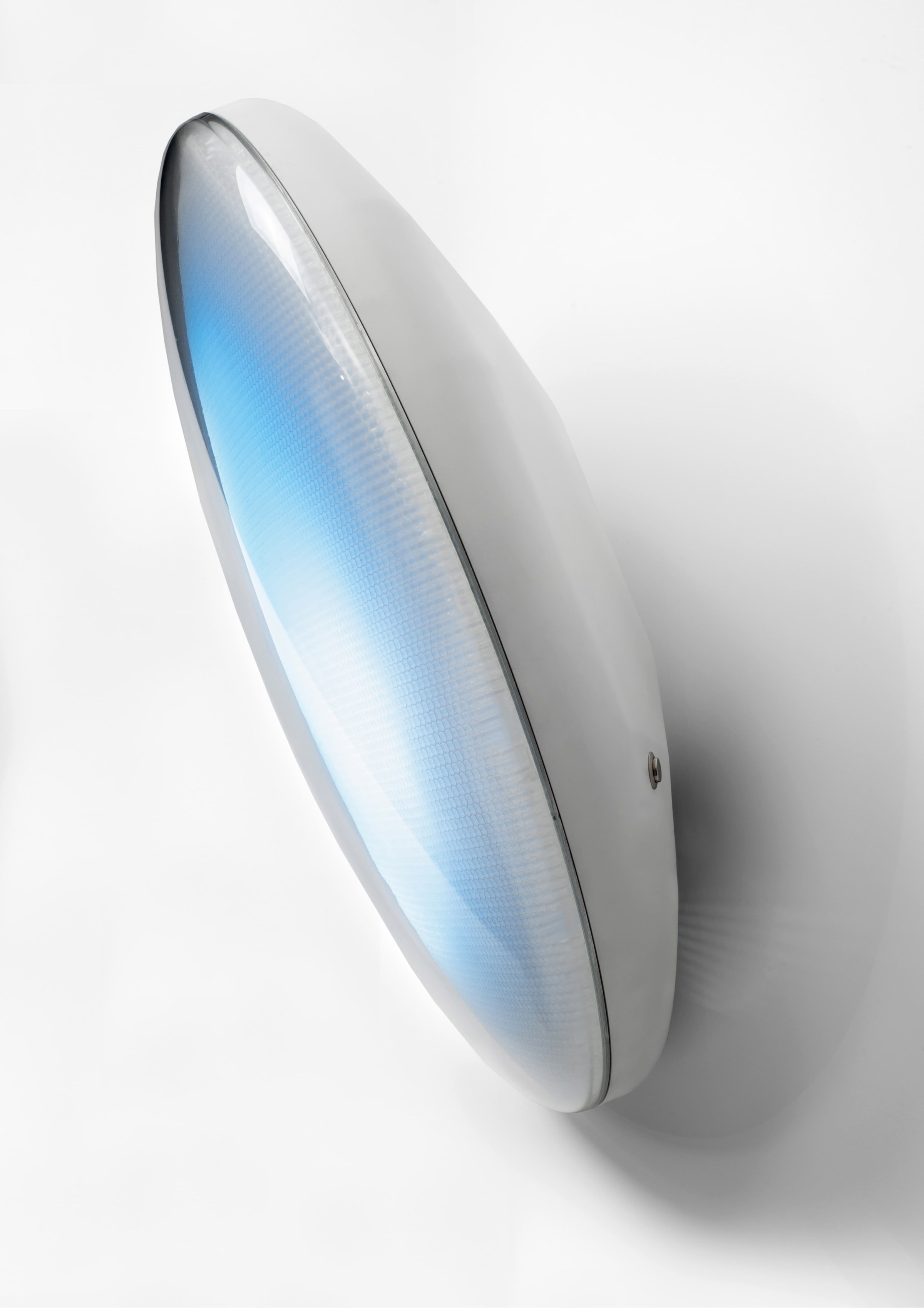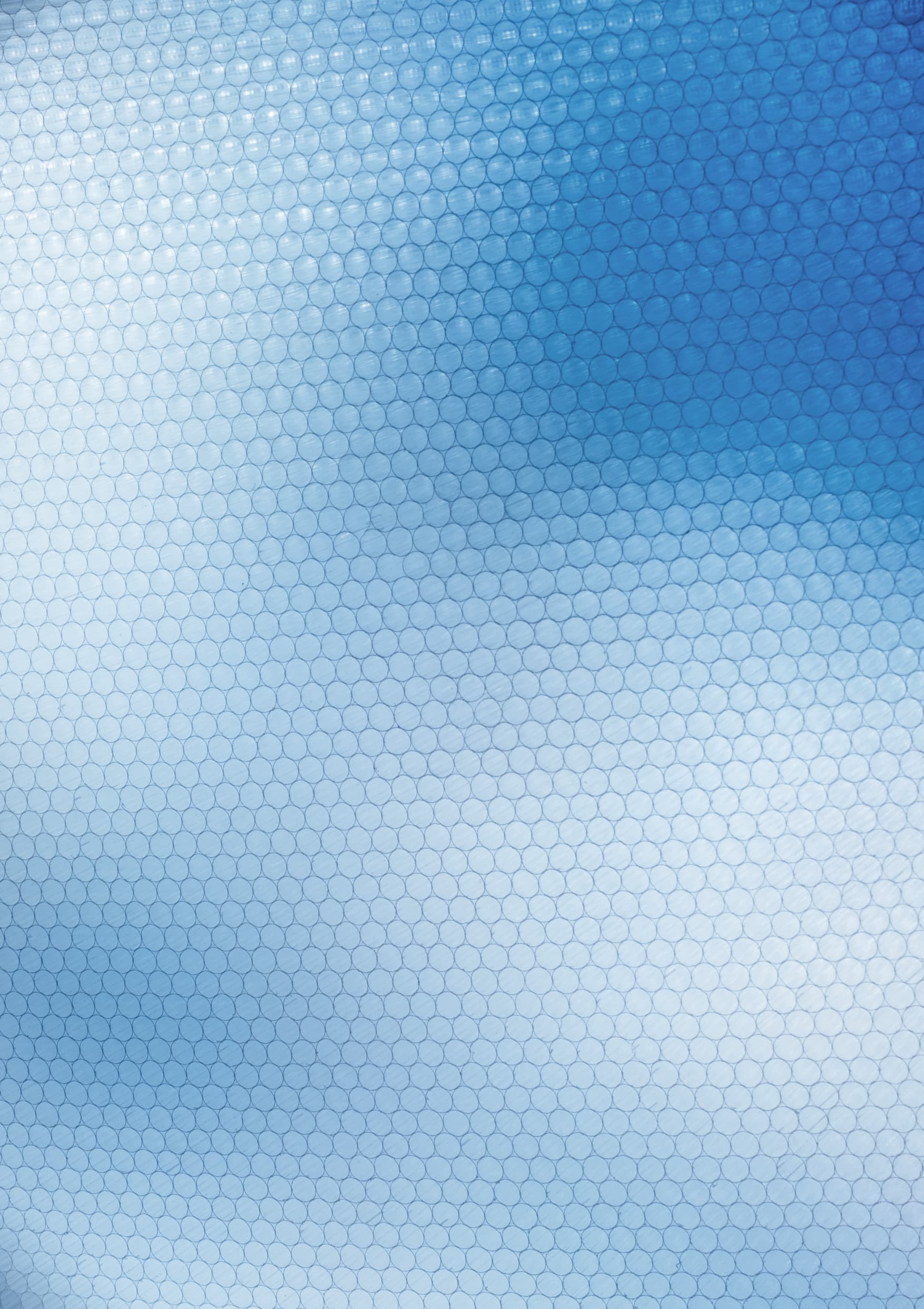Weather is often labeled as small talk’s last resort, a dreaded part of a conversation. However, it is also many people’s closest and most direct engagement with the rhythms and patterns of nature. This combined banality and universality is what inspired multidisciplinary designer Mathieu Lehanneur to evoke weather patterns in his project Tomorrow Is Another Day (Demain est un autre jour), commissioned and designed in 2011 for Diaconnesses Croix Saint-Simon Hospital in Paris. The porthole-like object glows softly as a honeycomb-structured screen displays gently moving clouds and color-shifting skies: a projection of the weather for the following day gathered from real-time meteorological data. A screen, a sculpture, and a celestial globe all in one, Tomorrow Is Another Day expresses the ethereal and profound aspects of natural phenomena (cat. 61 and detail).


Scientists and medical professionals have long been interested in the benefits of nature, particularly natural views, on hospital patients. In 1984, psychologist and architect Roger Ulrich published a study that found gallbladder-surgery patients who could see trees through their windows were recorded as requesting less pain medication and described by hospital staff as having better attitudes than patients in rooms without green views.1 In an important distinction, however, Tomorrow Is Another Day was designed for a palliative care unit, where patients face complex illnesses, frequently with unfavorable prognoses. The average duration of a stay is only twelve days.2 Employees of the hospital noticed that patients and their families often struggled for conversation, which Lehanneur believed to be due to the uncertainty of terminal illness. In seeing the next day’s weather patterns, which can be programmed to any location in the world, patients and their loved ones are reconnected to an idea of the future and can visualize themselves in it. Tomorrow Is Another Day reaffirms the importance of nature and its processes in the lives of people, especially in difficult periods, through something as mundane as experiencing—and talking about—the weather.
Kit Bernal
-
Florence Williams, The Nature Fix: Why Nature Makes Us Happier, Healthier, and More Creative (New York: W. W. Norton & Company, 2017), 108; Roger S. Ulrich, “View Through a Window May Influence Recovery from Surgery,” Science 224, no. 4647 (April 1984): 420–21. https://www.science.org/doi/10.1126/science.6143402. ↩︎
-
“More Answers from French Designer Mathieu Lehanneur,” New York Times, August 13, 2012, https://www.nytimes.com/2012/08/13/garden/more-answers-from-french-designer-mathieu-lehanneur.html. ↩︎